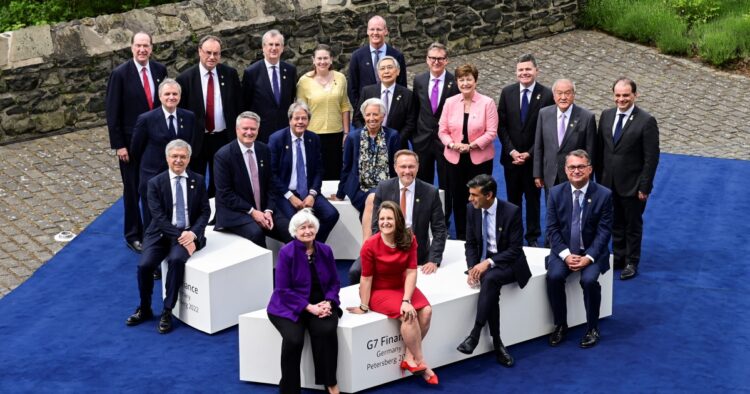Finance leaders from the Group of Seven (G7) wealthy democracies are meeting on Wednesday to discuss a plan to use earnings from frozen Russian assets to support a $50 billion loan to Ukraine. These discussions will happen alongside a G20 finance leaders’ meeting in Brazil, which will also cover broader economic, climate, and development issues.
A senior U.S. Treasury official mentioned that the G7 meeting is not expected to result in an agreement or statement. However, finance ministers need to discuss the technical details of the loan plan for Ukraine.
At the same time, EU member states’ ambassadors are discussing how to address U.S. concerns about ensuring that the assets remain frozen long-term.
In June, G7 leaders agreed in principle to use the earnings from about $300 billion worth of Russian assets, which have been frozen since Russia invaded Ukraine in 2022, to back the loan for Ukraine. This would provide Ukraine with financial certainty beyond this year.
The plan does not involve confiscating the assets, which the European Union believes could destabilize the global financial system. However, the details of the loan have been more complicated to work out than expected.
The U.S. wants guarantees that the assets will stay frozen for a long time, at least until there is a peace treaty that ends the war and ensures Ukraine’s sovereignty, and until Russia compensates Ukraine for the damage caused by the war.
This demand is somewhat at odds with the EU’s sanctions regime against Russia, which needs to be renewed every six months. This means there is a possibility that the assets could be released.
The U.S. Treasury official emphasized the need for solid assurances that the assets would not be re-mobilized in a way that would end the financial support for Ukraine, except in the case of a peace deal where Russia pays for the damages it has caused.
The official did not specify how these assurances could be achieved but stressed that G7 leaders are determined to make the loan plan work.
ALSO READ: “G7 Blames China For Enabling Ukraine War, Threatens Sanctions”
An EU draft document shows that EU ambassadors are considering options to extend the renewal period of sanctions on the Russian central bank’s assets to secure the loan plan. These options include an open-ended extension or an expansion of the renewal period to up to three years. Any decision would require unanimous agreement among EU member states.
The draft document states that the extension would aim to provide legal certainty and predictability for G7 partners, ensuring that the revenue streams are available to help Ukraine service and repay the additional loans from the EU and G7 partners.

















Comments